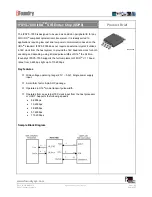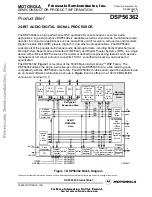
Header Files
7-4
7.2 Header Files
Each run-time-support function is declared in a
header file
. Each header file
declares the following:
-
A set of related functions (or macros)
-
Any types that you need to use the functions
-
Any macros that you need to use the functions
These are the header files that declare the run-time-support functions:
assert.h
limits.h
stddef.h
ctype.h
math.h
stdlib.h
errno.h
setjmp.h
string.h
float.h
stdarg.h
time.h
ioports.h
In order to use a run-time-support function, you must first use the #include
preprocessor directive to include the header file that declares the function. For
example, the isdigit function is declared by the ctype.h header. Before you can
use the isdigit function, you must first include ctype.h:
#include
<ctype.h>
.
.
.
val = isdigit(num);
You can include headers in any order. You must include a header before you
reference any of the functions or objects that it declares.
Sections 7.2.1,
Diagnostic Messages (assert.h)
Time Functions (time.h)
, on page 7-11 describe the header files that are
included with the C compiler. Section 7.3,
Summary of Run-Time-Support
Functions and Macros
, on page 7-13, lists the functions that these headers
declare.
Summary of Contents for TMS320C2x
Page 8: ...viii...
Page 69: ...2 47 C Compiler Description...
Page 159: ...6 36...
Page 226: ...8 6...
















































